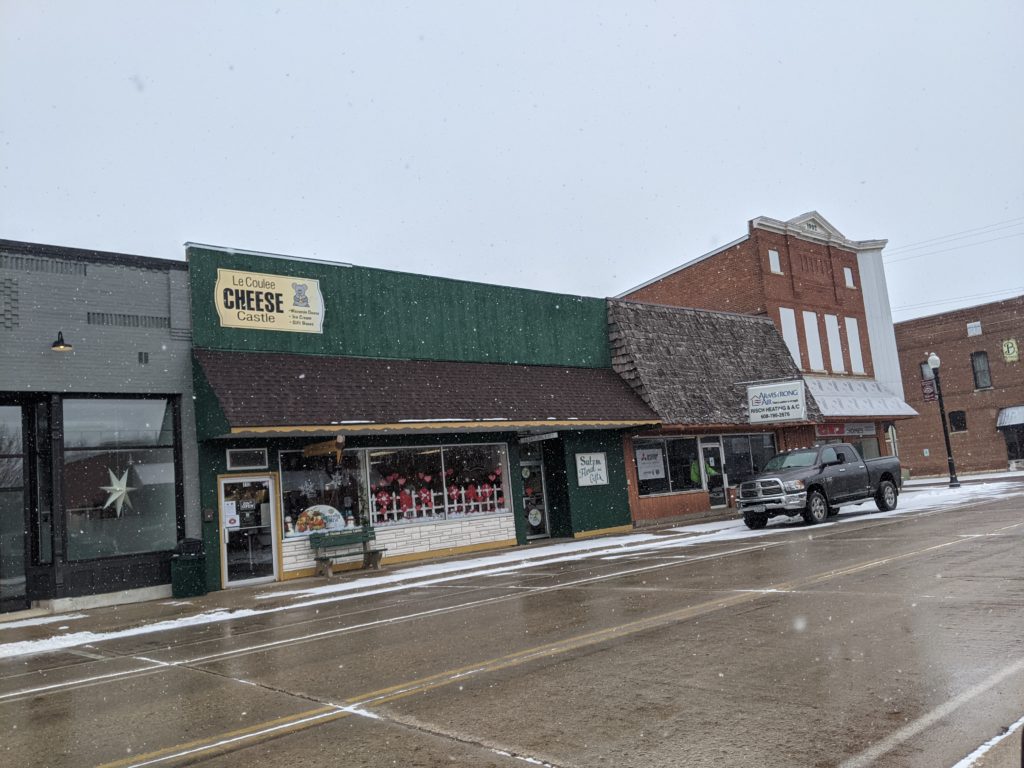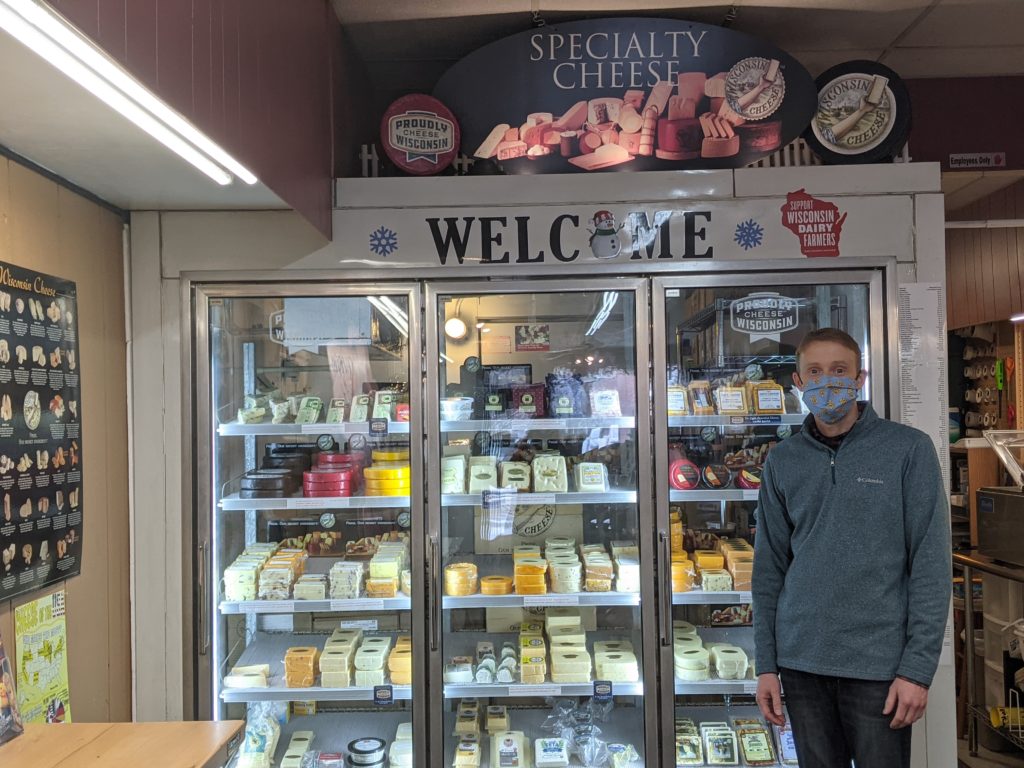First woman to chair state Agriculture Committee dies

Wisconsin agriculture has lost a friend and advocate.
Former 91st District State Representative Barbara Gronemus of Whitehall died Sunday away at 89.
Gronemus, a Democrat, served in the state legislature for 26 years and was the first woman to ever chair the Assembly Agriculture Committee. Throughout her career, she fought for rural issues and was especially noted for her work on the stray voltage issue in the state.
Her funeral will be Friday morning at 10:30 a.m. at St. John’s Catholic Church in Whitehall.
Expert: Farmers Must Take Steps to Protect from Activists
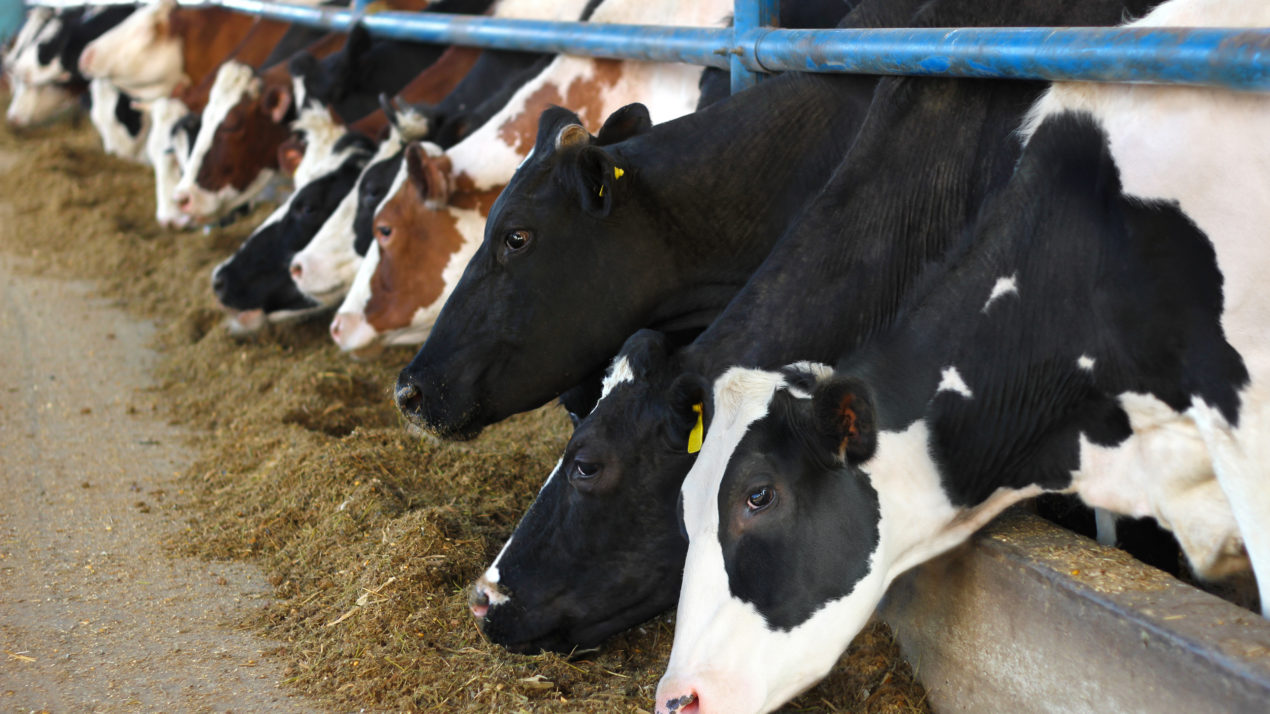
Hundreds of animal rights activist groups are influencing the way farmers do business around the globe. As these activists become even more organized and their tactics evolve, agriculture advocates are encouraging farmers to protect themselves from damaging consequences.
“Animal rights activists hope to bring an end to animal agriculture and take meat, poultry, dairy and eggs off our plates,” said Hannah Thompson-Weeman, vice president of strategic engagement at Animal Agriculture Alliance. “Most activists are not truly concerned with animal welfare. Their claims about seeking to improve the lives of farm animals are typically used to obfuscate their true intentions.”
Thompson-Weeman spoke today to participants at Dairy Strong, the Dairy Business Association’s annual conference. The event is virtual this year.
Animal Agriculture Alliance is a non-profit organization that helps bridge the communication gap between farm and fork. A key focus for the alliance is to expose groups that threaten the nation’s food security with damaging misinformation.
Despite the goals of activists, data consistently shows Americans love their meat. In 2019, they ate a record-setting 223.7 pounds of red meat and poultry per capita, Thompson-Weeman said. But activism is certainly having an impact on the way farmers do business, she said.
“For example, activist campaigns pushed more than 300 food brands to adopt policies requiring cage-free housing for laying hens,” she said. “This is forcing the egg industry to undergo a massive transition in operations, which comes at an increased cost.”
As activists work tirelessly to convince customers that veganism is the best diet plan, farmers work vigorously to produce safe, nutritious products using humane farming practices, Thompson-Weeman said.
She shared actions farmers can take to protect their operations from undercover activists.
- Evaluate every information request carefully. Do not give information over the phone, only in writing. Ask for references and verify every step of the process.
- Ensure access to the farm is controlled using check-in and check-out procedures, visitor identification badges and visitor escorts.
- Maintain basic security such as locked office doors, file cabinets and animal product storage; use surveillance video; install firewalls on all computer systems; and maintain clear signage.
- Thoroughly screen all job applicants and check references. Double-check applicants who show university or college identification.
- Monitor new employees for unusual behavior. Be sure they leave the farm after their regular shift and stay away from restricted areas.
- Train all employees on proper animal care and ensure they are clear on all farm policies, including zero tolerance on animal mistreatment.
- Watch for warning signs of being targeted by activists. Signs might include increased requests for animal-specific information or farm tours, correspondence questioning farm practices or harassing farmers or employees, increased media attention, special interest groups campaigning locally, and unusual interest in gaining employment especially employment with access to animals.
Thompson-Weeman said securing farms is essential, but she also advises the animal agriculture community not to forget the importance of setting the record straight. Farmers can share positive, accurate information to be sure customers hear the truth.
“Community and influencer engagement needs to be part of everyone’s business plan with a focus on critical topics,” she said. “It’s up to every stakeholder in agriculture to demonstrate their own passion and commitment to continuous improvement in order to maintain consumers’ trust.”
FarmFirst to Host Dairy Risk Management Webinar on Tuesday, January 26
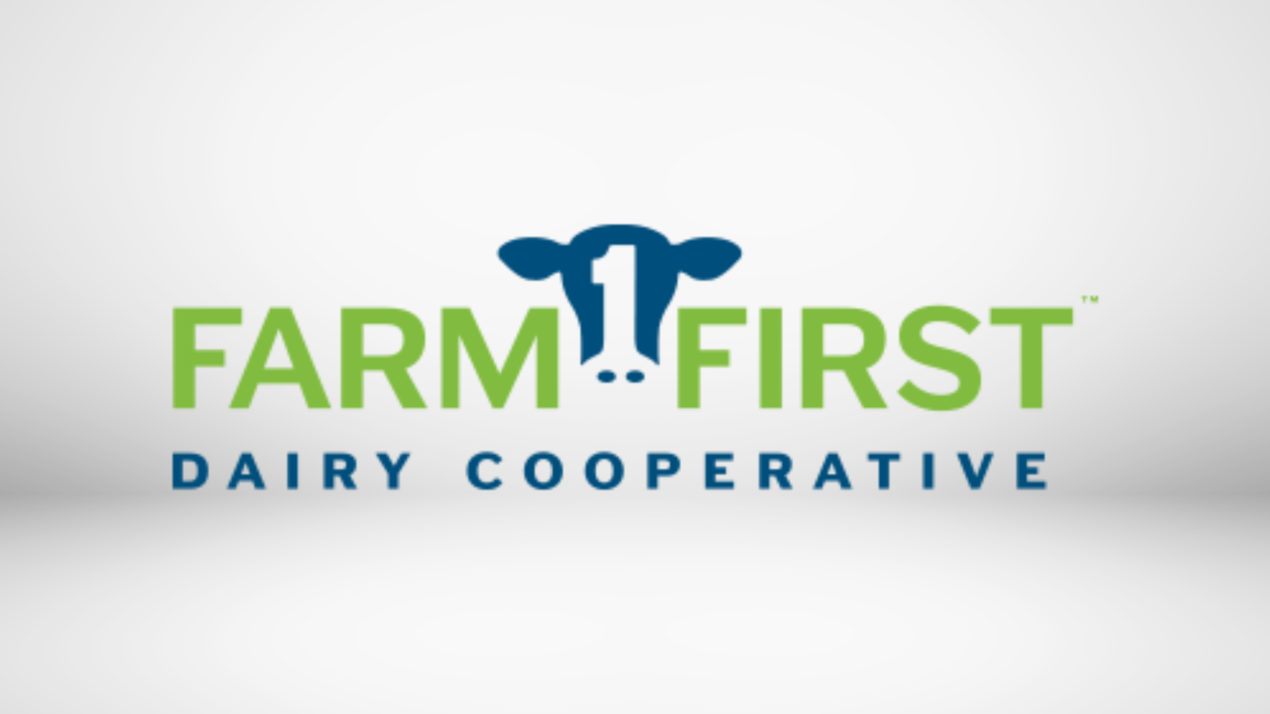
FarmFirst Dairy Cooperative is hosting a free dairy risk management webinar at 11:30 a.m. on Tuesday, January 26. This free webinar event is open to all dairy farmers, regardless of cooperative membership.
The hour-long webinar will feature University of Wisconsin–Madison dairy economist Mark Stephenson, who will provide a dairy pricing forecast for 2021, and Travis Glaser with ARM Services will share his outlook on the year ahead, his recommendations on what you can do to reduce price volatility, and what has worked well for dairy farmers in recent years. The webinar will also include how a dairy farmer might utilize crop insurance differently than a crop farmer might, in addition to what dairy farmers starting out need to consider across all risk management options.
“FarmFirst leadership saw a need to connect members with experts in dairy risk management, especially after the turbulent year of milk pricing we had in 2020. Dairy farms are incredibly diverse and the way they use risk management tools is just as diverse,” says John Rettler, dairy farmer and President of FarmFirst Dairy Cooperative. “Hosting this free webinar for all dairy farmers is one way that we can help dairy farmers make connections to expand the risk management tools that are available to them.”
Registration is available at www.FarmFirstDairyCooperative.com. FarmFirst is providing this free, educational webinar to provide dairy farmers with an opportunity to foster discussion on dairy risk management options that have not fully explored – and should – as we begin 2021.
FarmFirst Dairy Cooperative, established in 2013 and based in Madison, Wis., represents farmers in Wisconsin, Minnesota, South Dakota, Michigan, Iowa, Illinois, and Indiana by providing legislative and regulatory advocacy, dairy marketing services, disaster protection, laboratory testing opportunities and industry promotion. FarmFirst Dairy Cooperative is a merger of three long-time prominent Wisconsin-based cooperatives. Learn more about FarmFirst Dairy Cooperative by visiting: www.FarmFirstDairyCooperative.com.
ARC/PLC Recommendations Available as Deadline Draws Closer
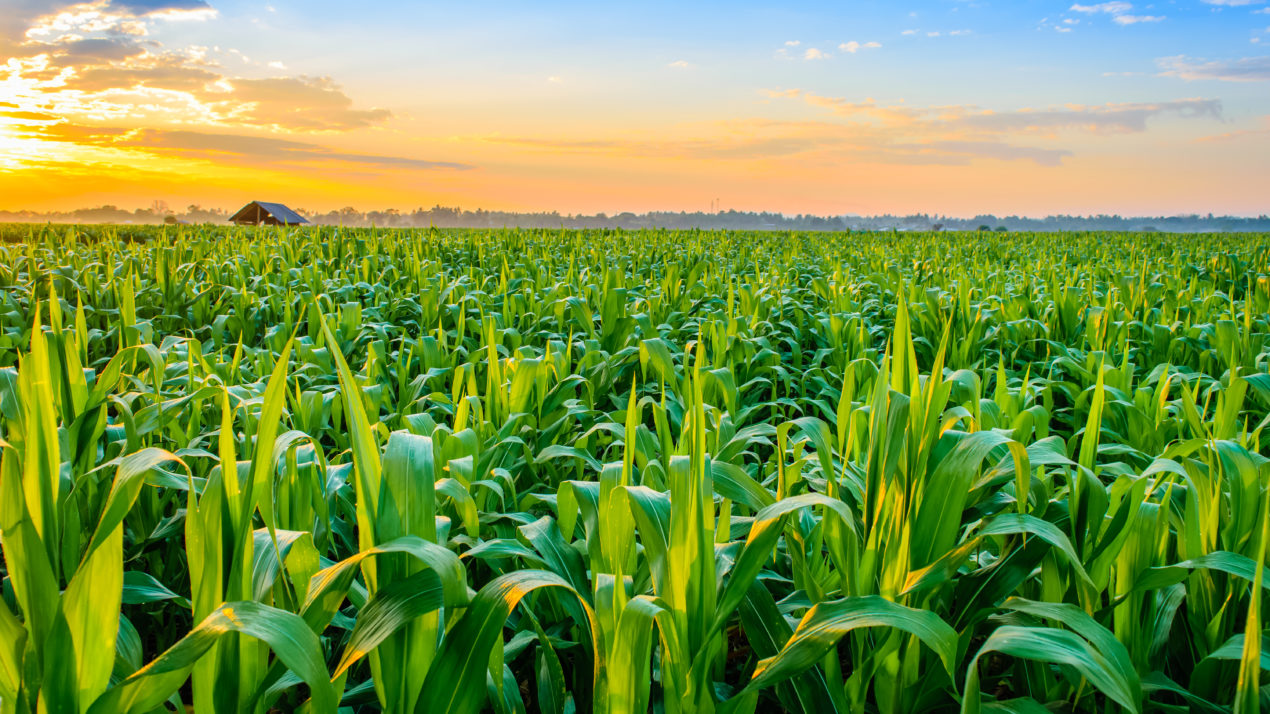
Wisconsin farmers have until March 5th, 2021 to sign up for either ARC or PLC through their local FSA office. Dr. Paul Mitchell, the Director of the Renk Agribusiness Institute, is offering up his recommendations on which choices you should make as the deadline draws closer. Materials, courtesy of Dr. Mitchell, can be found below.
ARC AND PLC SIGNUP RECOMMENDATIONS FOR 2021 FOR WISCONSIN FARMERS
Hiring, management tools boost success on dairy farms
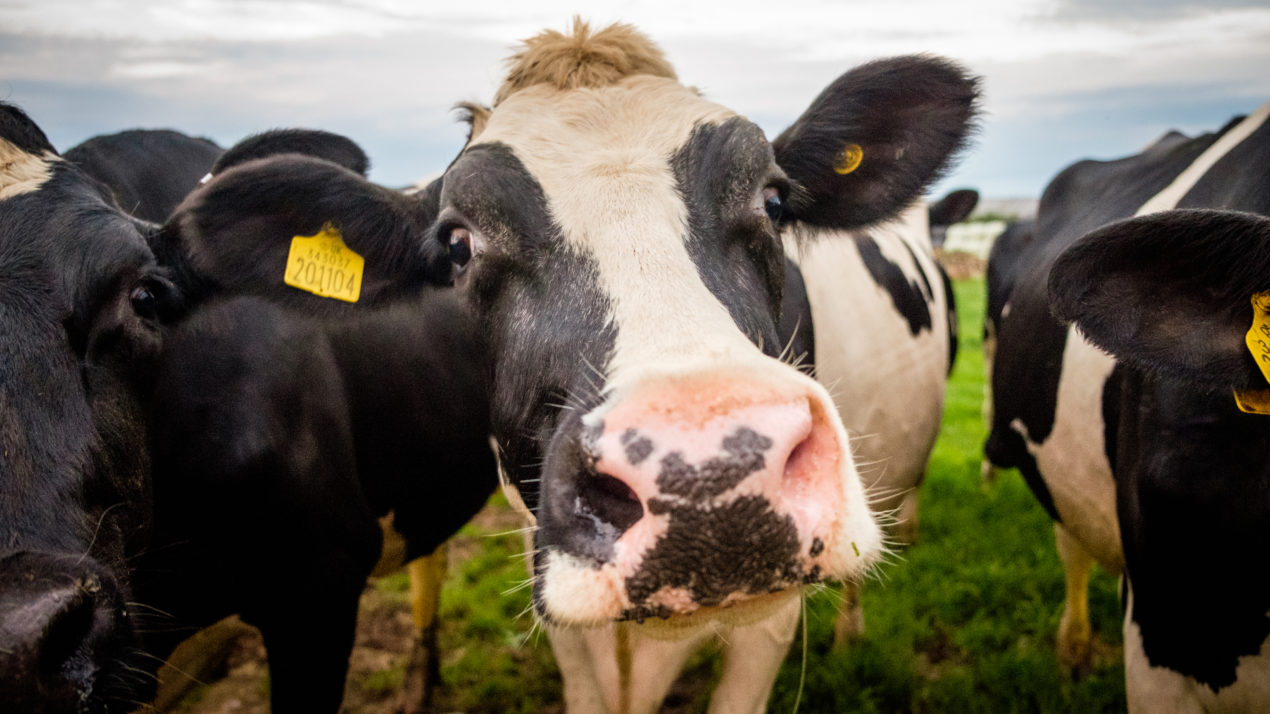
As 2021 gets underway, farmers are dealing with familiar issues, things like up-and-down milk prices and weather. Increasingly, the challenge of finding and keeping quality employees is becoming one of the standard issues as well.
But while milk prices and weather are out of a farmer’s control, there is something that can be done to improve the workforce situation. Jorge Delgado of Alltech’s training, talent development and retention for dairy workers program, stresses that getting creative and proactive in hiring and management is crucial.
“It’s time to start thinking outside of the box; start innovating, applying and changing the way we manage employees in our industry,” Delgado said. “We need to start thinking in a proactive way when it comes to managing employees instead of thinking in a reactive way.”
Delgado shared his advice today with participants at Dairy Strong, the Dairy Business Association’s annual conference. The event is virtual this year.
Dairy farmers can use tools like personality tests to measure current and potential employees’ aptitude, personality traits and skill sets, Delgado said. Personality tests help farmers find answers to important questions. Will the employee be comfortable in a certain role? Does he or she have the behavioral traits that will lead to success in a position?
“I believe they [farmers] can make a better impact internally through changes in the way they work with their employees,” Delgado said.
Farmers will enjoy a more efficient hiring process using objective and validated metrics, as well as increased employee retention, he said. They will also see a reduction in costs associated with turnover, such as hiring and training, and a higher rate of productivity.
Alltech On Farm support has a model called The Workplace Productivity Profile, which is a test to help dairy farmers predict whether an individual will be a conscientious, productive and reliable employee. This is generally used for entry-level positions.
“This test measures several traits: conscientiousness, perseverance, integrity/honesty and attitudes toward theft and fraud,” Delgado said.
Getting an idea of whether an employee will be reliable and productive, as well as diligent in following the rules and regulations of the farm, can help farmers position the best people in the most effective roles and improve the culture on the farm, he said.
Another relatively new management tool for dairy farmers is the use of internal surveys. Anonymous feedback from employees provides farmers a better understanding of concerns they need to address, Delgado said. This helps improve workplace culture and employee productivity and motivation.
Le Coulee Cheese Castle spreads the love for Wisconsin’s dairy industry

Every day may feel like a holiday in Wisconsin for fans of the state’s signature dairy product, but Jan. 20 marked a special day for dairy farmers, cheesemakers, retailers, and consumers alike as National Cheese Lover’s Day.
Nick Miller is a key part of that rich dairy heritage. He grew up on a dairy farm in Wisconsin not far from Le Coulee Cheese Castle. The business was originally started in 1980 in Mindoro, Wis. by Duane and Mary Lou Pfaff. Duane was a cheesemaker and operated several different factories around Wisconsin during his career. The Pfaffs moved the business to downtown West Salem in 1981. Miller bought the business in 2003 to continue offering more than 60 varieties of Wisconsin cheese, Wisconsin sausage, hand-dipped ice cream cones, and various gifts.
“When the previous owners were thinking about retiring, I always thought this was a really cool store, and I wanted to continue the tradition of Wisconsin cheese here,” Miller said.
Despite the challenges of 2020, Miller said the cheese business stayed pretty steady.
“I probably saw fewer regular customers as often, but when they did come, they really stocked up, which was great,” he said.
A classic favorite from the cheese castle is an aged cheddar, but those wanting to try some of Wisconsin’s more than 600 varieties, types, and styles of cheese will also branch out with cranberry, olive, maple, or other unique flavors.
Through his job, Miller meets visitors from out of state who stop in to try the famous Wisconsin cheese. The peak time for these new guests is between Memorial Day and Labor Day.
“It’s almost like a requirement that they have to take cheese with them when they leave the state, so they are always excited to get it,” Miller said. “I think it is just a long-standing tradition knowing the quality of Wisconsin cheese is always top-notch. With so many unique flavors, it is a fun thing for people to try.”
Miller is a resource for people who have questions about the different cheese varieties and makes recommendations to help customers find a flavor that fits them.
“If you continue to buy Wisconsin cheese and continue to support dairy farmers, that would be beneficial to the whole state,” he said.
Nearly 90 percent of the milk produced in Wisconsin is made into cheese. Wisconsin cheesemakers make 26% of the nation’s cheese, producing 3.36 billion pounds in 2019, according to the Wisconsin Department of Agriculture, Trade and Consumer Protection. Wisconsin’s dairy industry generates $45.6 billion for the state’s economy.
Study Shows Farmers Protecting Water in Western Wisconsin
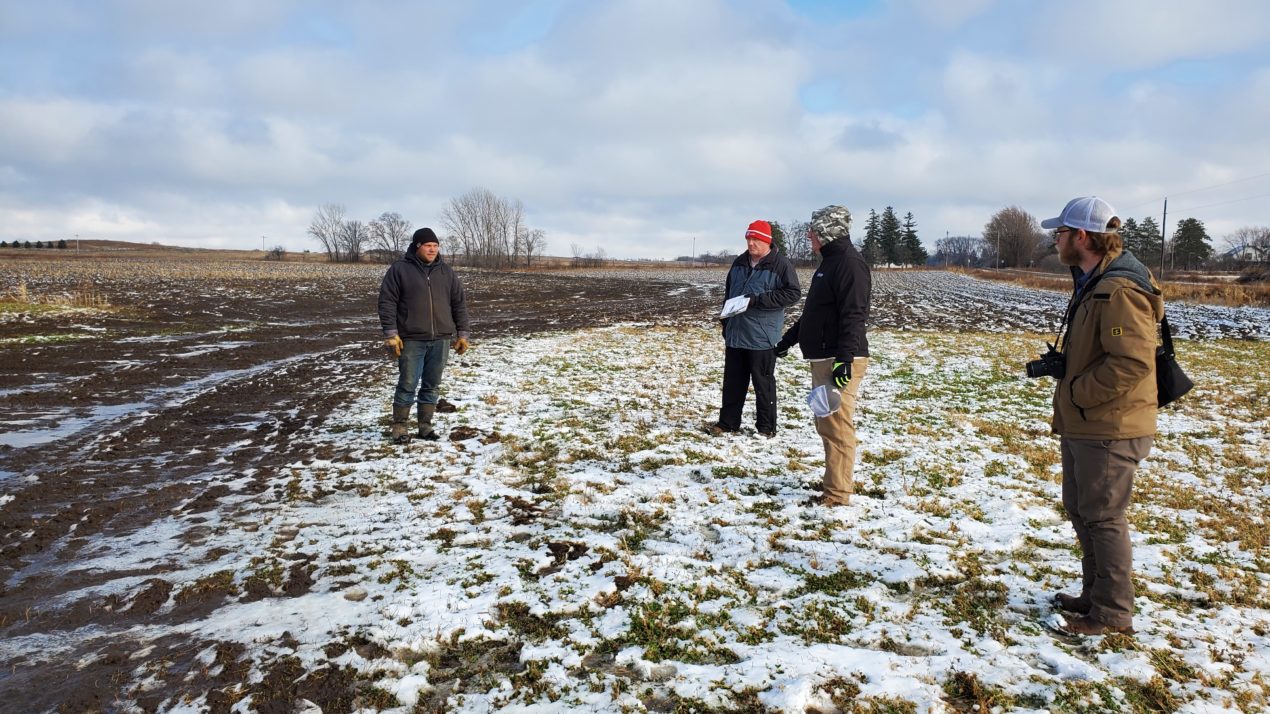
Farmers in a five-county area in western Wisconsin are showing the value of non-traditional farming practices, and their efforts are reducing potentially harmful runoff into streams and lakes, a new analysis shows.
Field practices adopted by the Western Wisconsin Conservation Council’s livestock and crop farmers are significantly reducing the chance of harmful runoff into streams and lakes, according to research shared by the state Department of Agriculture, Trade and Consumer Protection, the University of Wisconsin-Madison, and The Nature Conservancy.
Using data about farming practices among members of the farmer-led watershed conservation group, the analysis calculated an estimate of the potential impact of various practices compared to more conventional methods typical to Barron, Dunn, Pierce, Polk and St. Croix counties. The findings show, for example, that the farmers using strip-tillage and no-tillage practices on typical crop and livestock operations potentially reduce phosphorus runoff from farm fields by 44 percent and soil erosion by 48 percent.
Stopping phosphorus and soil sediment from leaving farm fields improves water quality. For example, every pound of phosphorus that reaches a stream or lake can potentially feed 500 pounds of algae, degrading the waterway.
“As a group, we are working for continuous improvement in water quality and soil health by using a wide array of best management practices,” Todd Doornink, a dairy farmer in Baldwin who leads WWCC, said. “These results measure our progress, and we will continue to push ourselves to be better stewards of the land every day.”
The four-year-old nonprofit has grown to 40 members who represent 28,250 acres and 6,800 dairy animals, beef cattle, pigs, goats and other livestock. The group also has members who farm vegetables and fruit. The council collaborates with university researchers, environmental groups and community leaders. They hold field days to demonstrate various practices, and they participate in scientific studies, notably a well-water testing study with the University of Wisconsin-River Falls.
“We’re excited to work with the WWCC farmer members who are not only making changes in how they farm and manage their soil but sharing their data to illustrate their impact,” said Steve Richter, agricultural strategies director at The Nature Conservancy. “In 2020, we saw big increases in the number of farmers using advanced nutrient management practices and establishing grass waterways, and in the acres covered by those practices. I’ll look forward to hearing about the beneficial impacts of these practices on the environment and their farm operations at future field days.”
WWCC members are regularly practicing conservation techniques like basic soil sampling, nitrogen stabilization, nutrient management plans and split nitrogen applications. They are also figuring out how to make these practices financially sustainable through increased productivity.
CONSERVATION PRACTICES
WWCC farmers have made noticeable changes to their practices. The most recent numbers (2019):
- 15,800 acres of conservation tillage practices (either strip-till or no-till planting in spring)
- 27,400 acres covered by nutrient management plans
- 10,725 acres of cover crops
- 1,500 acres of low-disturbance manure injection
MORE ABOUT THE ANALYSIS
The analysis was completed as part of a conservation benefits tracking project initiated by the Wisconsin Department of Agriculture, Trade and Consumer Protection to evaluate impacts of the state’s Producer-Led Watershed Protection Grants Program. The initiative was developed in collaboration with the University of Wisconsin-Madison Department of Soil Science and The Nature Conservancy. Wisconsin’s SnapPlus nutrient management planning software was used to calculate the potential annual phosphorus loss and soil erosion on fields when farms include practices such as cover crops and reduced tillage.
While not every conservation practice provided significant reductions for each scenario, below are examples of the amount of phosphorus loss and soil erosion that can be avoided with the adoption of practices on agricultural landscapes in Barron, Dunn, Pierce, Polk and St. Croix counties. Acreages of practices are based on the average number of acres implemented on WWCC member farms in 2019.
It is important to note that the calculations below are based on comparisons of generalized systems, not actual farms, and do not take into account the other watershed variables that impact how sediment and phosphorus make their way into a stream or lake.
For comparison, a mid-size dump truck can carry 10 tons of sediment, and 1 pound of phosphorus in a waterway has the potential to cause the growth of up to 500 pounds of algae.
Dairy farm with a corn silage and alfalfa rotation adopting 715 acres of small grain cover crops following corn silage
Phosphorus loss reduction: 1,466 pounds
Soil erosion reduction: 1,416 tons
Corn/soybean farm adopting 903 acres of strip-tillage
Phosphorus loss reduction: 2,646 pounds
Soil erosion reduction: 2,655 tons
Corn farmer adopting 692 acres of no-tillage
Phosphorus loss reduction: 1,163 pounds
Soil erosion reduction: 796 tons
Dairy Business Association Sets Legislative Priorities for 2021
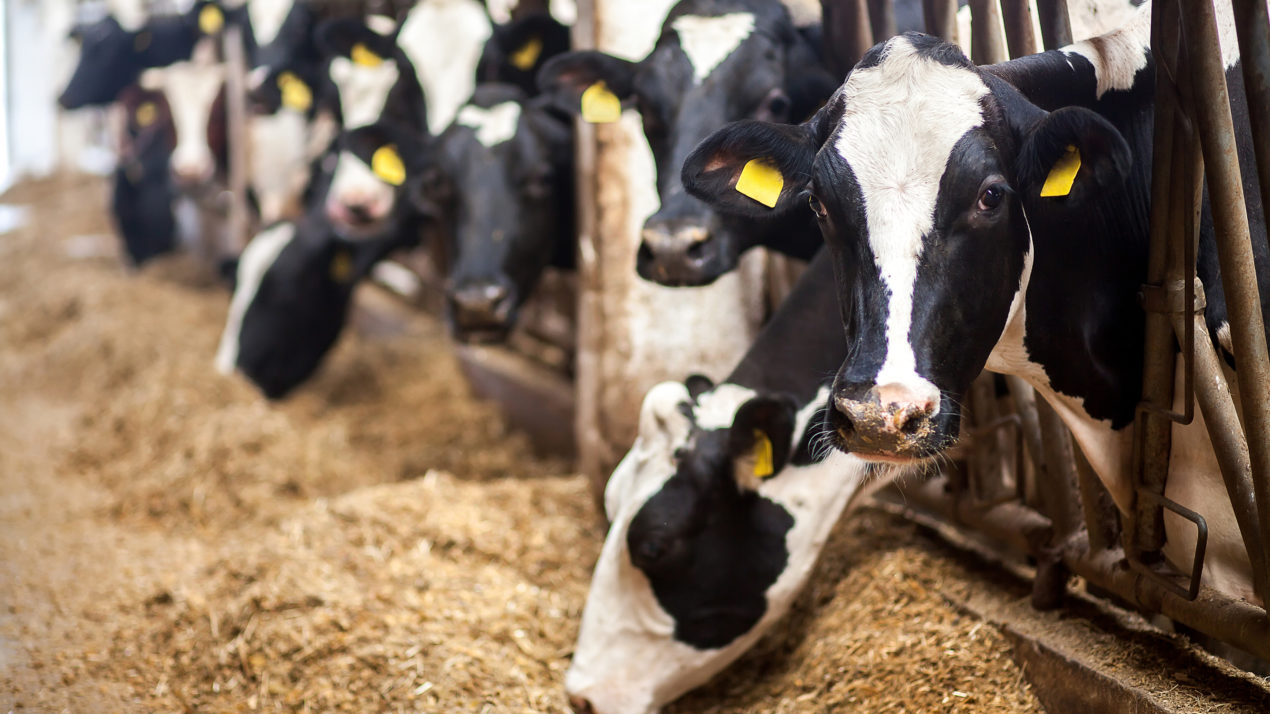
The Dairy Business Association, Wisconsin’s leading dairy advocacy group, today announced its top legislative and budget priorities for this year’s session.
Among the group’s areas of focus are improving the program that regulates larger farms, protecting customers with truth-in-labeling bills for dairy products and meat, and responding to challenges posed by COVID-19. The announcement came just before the start of DBA’s annual Dairy Strong conference.
DBA will also continue to champion clean water initiatives. In December, the association announced a joint policy effort with three environmental organizations that is aimed at improving water quality while also supporting farmers. Clean Wisconsin, The Nature Conservancy and the Wisconsin Land and Water Conservation Association are the other partners.
“DBA’s legislative priorities reflect the complexity of the dairy community. While each of these wide-ranging issues is important on its own, they all fit into a larger approach to supporting our farmers and processors as well many other connected businesses,” Amy Penterman, president of DBA and a farmer in northwestern Wisconsin, said. “We urge the governor and legislators to put the pieces together as they move their agendas forward and shape the next budget.
“We realize this is a very difficult time for our state, as it is for others. The pandemic continues to take a toll, including on the economy. For Wisconsin to rebound the way we all want it to, it’s essential that the dairy community is successful. Billions of dollars in economic value, thousands of jobs and the production of wholesome food depend on it.”
SUMMARY OF LEGISLATIVE PRIORITIES
John Holevoet, DBA’s director of government affairs, laid out the priorities. (More details are available on DBA’s website)
Improving the CAFO program: We can have a system that saves staff time, relies more on private industry and focuses on continuous and quantifiable improvement. Increased CAFO fees and more staff are often offered as solutions to the program’s problems. We are not opposed to either of these things, but only if they are part of a package of broader improvements to the overall program.
Funding the Dairy Innovation Hub: Lawmakers and Gov. Evers made a commitment to the next generation of dairy research in the last budget by funding the creation of a Dairy Innovation Hub at three University of Wisconsin campuses. We want to maintain annual funding of $7.8 million per year.
Supporting clean water initiatives: Last session’s water quality taskforce bills were just the beginning of the discussion. Among other aspects, we need more funding for groundwater mapping, well testing, the non-point program and farmer-led watershed conservation groups.
Helping dairy processors be successful: We continue to support funding for a Wisconsin Initiative on Dairy Exports and added funding for dairy processor grants.
Passing truth-in-labeling bills for milk, other dairy products and meat: The plant-based industry uses terms like milk, cheese and ice cream to ride on the marketing coattails of dairy farmers and processors. Customers are being misled and farmers and processors are being treated unfairly.
Fixing the transportation funding problem: We need a long-term, sustainable fix for our state’s transportation funding needs. We want a proposal that will take care of funding needs for years to come and remembers the importance of rural roads to our state’s economy.
Providing driver’s permits for non-citizens: Properly trained and insured motorists should be able to drive legally regardless of their immigration status. From our perspective, this is a public safety and economic development issue.
Addressing targeted performance standards for nitrates: The state is working on creating new targeted performance standards to address nitrates in groundwater. Any new rules must outline the criteria for an area to be subject to the new standards and should allow for an area to be removed from the zone if it makes the necessary improvements. The standards should also require all farms to be treated fairly, regardless of size or type.
Promoting innovative farming practices: We need to provide farmers with more opportunities for innovation in farming practices. This will require regulatory flexibility, but it will ultimately make farms more environmentally and economically sustainable.
Providing flexibility for UW-Extension teaching requirements: We want to allow UW-Extension faculty to be able to count their time instructing farmers toward their teaching hour requirements. This is critical to the economic success of rural Wisconsin.
Responding to challenges created by COVID-19: The state should provide basic liability protections for businesses, include agricultural and food processing workers among the first to be vaccinated, and allow for flexibility for businesses whose normal business practices have been disrupted.
Lake Mills FFA Member Snags Grant for Chapter with Essay Contest Win
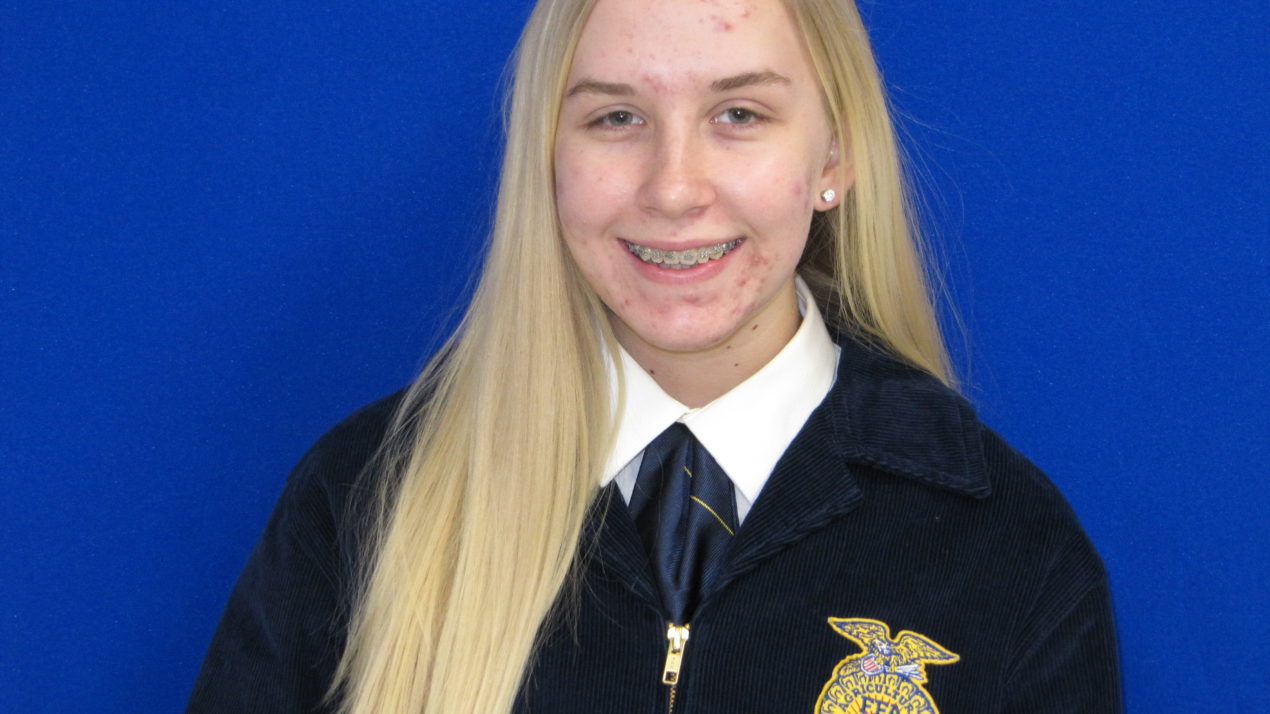
Sydney Burling of Lake Mills, Wisconsin, has been named the Wisconsin state winner of the 2021 GROWMARK essay contest for FFA members. The theme of this year’s contest was “If you could invent a new technology to improve agriculture, what would it be?” Students were encouraged to think creatively, not necessarily realistically, as they described their ideal invention.
In her contest entry, Burling said: “An invention that I would like to invent to help improve agriculture is a pollen solution that doesn’t come from a bee, but is created in a lab. The pollen would be produced and spread a lot faster than the average huge bee could spread pollen.”
Burling is a student at Lake Mills High School and a member of the Lake Mills FFA chapter. Her FFA advisor is Luke Wiedenfeld.
As the contest winner, Burling will receive a $500 award from GROWMARK. The Lake Mills FFA chapter will also receive a $300 award in honor of her accomplishment.
Four state runners-up will each receive a $125 award. The runners-up and their FFA chapters are, in alphabetical order: Eve Ihlenfeld, Slinger FFA Chapter, West Bend, Wisconsin; Chase Patterson, Unity FFA Chapter, Centuria, Wisconsin; Taryn Smits, Randolph Cambria-Friesland FFA Chapter, Cambria, Wisconsin; and Collin Zimmermann, Elkhart Lake-Glenbeulah FFA Chapter, Elkhart Lake, Wisconsin.
This is the 28th year for the program, sponsored by the GROWMARK System and FS member cooperatives, in conjunction with state FFA leaders, to help young people develop their writing skills, learn about current issues in agriculture, and understand the unique role of cooperatives.
GROWMARK is an agricultural cooperative providing agronomy, energy, facility planning, and logistics products and services, as well as grain marketing and risk management services throughout North America. Headquartered in Bloomington, Illinois, GROWMARK owns the FS trademark, which is used by affiliated member cooperatives. More information is available at www.growmark.com.
DNR Seeking Nominations For 2020 Hunter Ethics Award
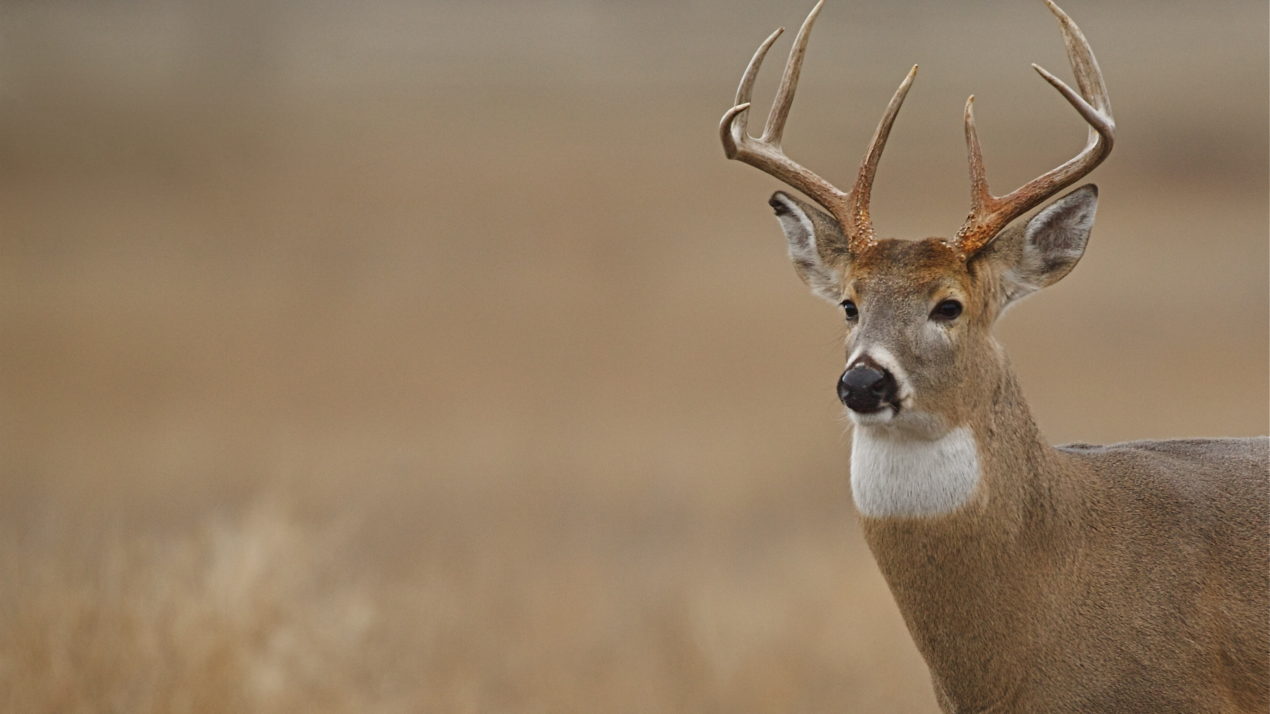
The Wisconsin Department of Natural Resources (DNR) is now accepting applications for its annual Wisconsin Hunter Ethics Award. Nominees are selected based on exceptional moral actions and character while out in the field.
Established in 1997, the Wisconsin Hunter Ethics Award recognizes a hunter whose action is symbolic of Wisconsin’s hunting heritage. This honor represents an outdoor tradition enjoyed responsibly, respectfully and safely.
“Ethical behavior demonstrates the moral character of the hunting public and illustrates how people can assist one another while recreating together in the outdoors,” said Casey Krueger, DNR Chief Conservation Warden.
Any hunter or non-hunter can nominate a licensed Wisconsin hunter for the Wisconsin Hunter Ethics Award for their actions during the 2020 calendar year. Although many nominations result from gun deer season, ethical actions can occur during a squirrel hunt, turkey hunt, waterfowl hunt or other Wisconsin hunting season.
“Ethical actions come in many forms; examples could include helping another person during a hunt or taking steps to protect our natural resources,” Krueger said. “Over the years, award recipients have returned lost gear, helped others find lost game or assisted another hunter facing a challenge of some kind.”
A four-person committee reviews the nominations and selects the person deemed most deserving of this award. The annual honor’s creators are Bob Lamb, retired outdoors editor of the La Crosse Tribune; Steve Dewald, retired DNR conservation warden supervisor, and Jerry Davis, a retired University of Wisconsin-La Crosse biology professor and outdoors writer.
The nomination committee focuses on singular actions or events rather than individuals who have long term conservation-related programs.
Submit nominations by email or letter explaining what the ethical act was to:
The Department of Natural Resources
c/o April Dombrowski, DNR Recreational Safety Section Chief
101 S. Webster St., P.O. Box 7921
Madison, WI 53707-7921
Email: [email protected]
The deadline to submit a nomination is Feb. 19, 2021.
To become eligible for the 2020 award:
- The nominee must be a licensed (resident or nonresident) Wisconsin hunter.
- The ethical hunting act must have occurred in Wisconsin during the 2020 calendar year.
- Nominations are considered for any DNR-regulated hunting activity in Wisconsin.
Written nominations must contain the name, address and telephone number of the witness or witnesses, or be aware of the behavior, which led to the nomination.

